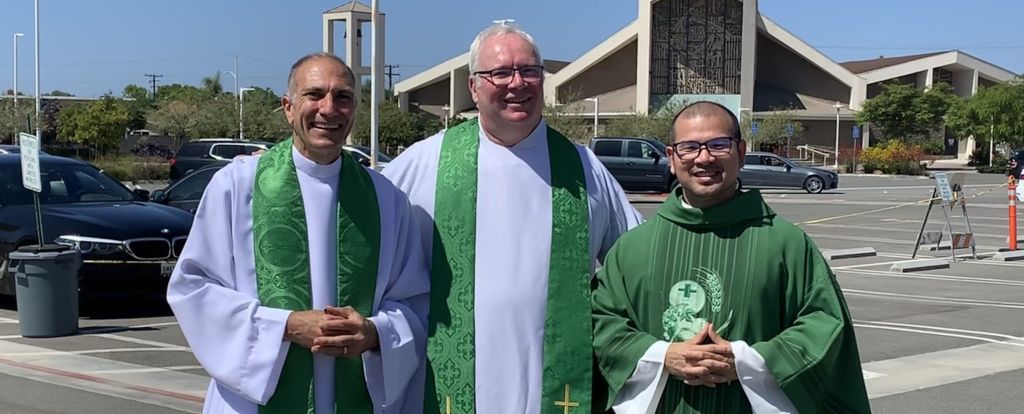
Pastoral Message – May 9, 2021
We tend to throw around the word “love” rather casually these days. We “love” pizza; we “love” the Dodgers or the Angels; and, of course, “love” is what makes a Subaru a Subaru. There are hundreds of popular songs with the word “Love” in the title or in the lyrics. At a higher level than pizza or sports teams or cars or music is the love that we have for our Lord, our spouse, our children, our parents, and our dear friends. Unfortunately, we use the same word “love” for those relationships as we do for our favorite snacks.
While we have one word for “love” that we use rather indiscriminately, the ancient Greeks had four words that they used very intentionally in specific circumstances:
- Philia (love for a friend); affectionate love that grows from friendship.
- Storge (love for a family member); familiar love.
- Eros (love that is passionate); the uncontrollable urge to say, “I love you.”
- Agape (love that is unconditional); love as an action; love that is focused on the other; love that takes courage, love that is both strong and sacrificial.
When we read the word “love” in the English translation of the Bible, it is sometimes hard to distinguish between the exact nature of the love that is being described because, to us, “love” is “love” but to the Greeks specific relationships gave rise to specific instances of love.
John uses the word “love” more than 50 times in his Gospel and his letters. Today we hear John say, “Beloved, let us love one another, because love is of God;” “Whoever loves me will keep my word…” and, “As the Father loves me, so I also love you…love one another.” The Greek word for love in these verses is agape. This is the highest form of selfless love. It is the love that God has for us. This is also the love that we are to have for God. It calls for a complete giving of ourselves, completely trusting in God’s love and mercy.
John also says that the amazing thing about God’s love is not that we love Him, but that He loves us and sent his Son to die for our sake despite our sins, our flaws, and our rejection of Him. Even though we can never love perfectly, we are, nonetheless, invited into the perfect love of the Trinity. In Paul’s letters, we learn that true agape love can never be exhausted or consumed and, as such, is the manifestation of the command to love God and love one another. Agape love is a love that is entirely “other focused” and is a love that never ends.
One day when my son and I were skiing, he took a nasty spill. As I skied down to meet him, picking up his skis and poles, I prayed that he was OK. When I got to him, he said he was fine, but then I saw blood on the snow. I told him to lay there for a second, which immediately caused him to panic. “Why, dad, what’s wrong?” “I just see some blood here.” The source of the blood turned out to be a gash on his back, most likely from his skis. I tried to stay calm as I reassured him: “Don’t worry…You’re going to be fine…Just a few stitches…No big deal.” That’s what I was saying. What I was thinking was how much I loved him and how I wished I could spare him by sacrificing myself and switching places with him.
Yet, I know that the way that I feel about my son is only a small and imperfect representation of the infinite and perfect love that God our Father feels for each of us. There is no comparison between our human ability to love and the love that God feels for us. This love is manifested in one of the most notable descriptions of God’s love for us: “For God so loved the world that he gave his one and only Son, that whoever believes in him shall not perish but have eternal life” (John 3:16). It is a love best felt each time we receive the Eucharist – the Body and Blood of His Son. Let’s strive to have the kind of mature, sincere, agape love that is needed to bring together as the Body of Christ – one community in the Eucharist.
Fr. Mike

